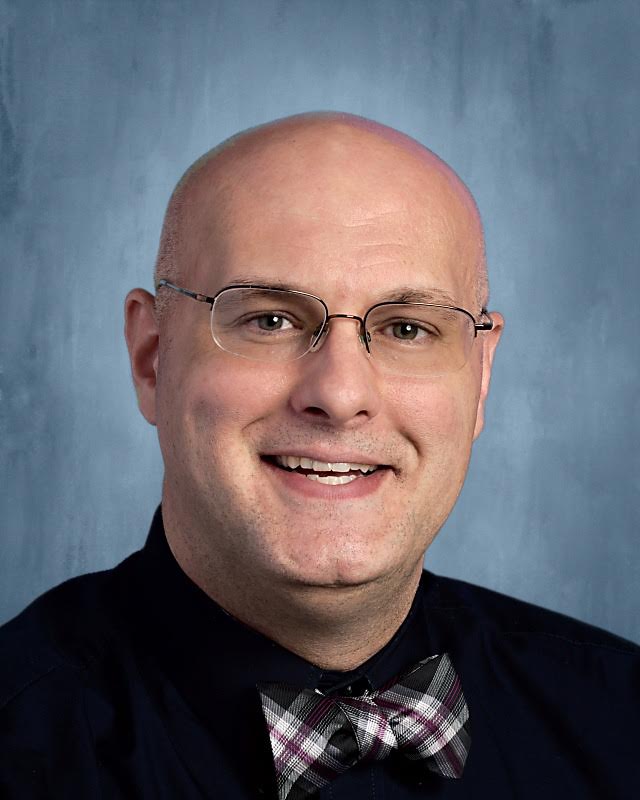Monday, September 13, 2021
For Immediate Release
Matthew Fallano Teaches High School Students
to Tackle Real-World Problems
Hanover, MA – South Shore Technical High School educator Matthew Fallano empowers his grades 9-12 students to use inquiry and critical thinking skills to solve real-world problems. Matthew says that many of his students plan to pursue careers in construction or health science, so they are likely to use content from his physics, environmental science, biology, or anatomy classes on-the-job. “I love vocational school,” he says. “The students are here to learn a trade, but they need science to do their trade.”

Photo courtesy of Matthew Fallano
While working as a long-term substitute in the interim between pursuing his B.S. in Microbiology and his initial goal of becoming a researcher, Matthew found his passion for teaching. He quickly came to realize that educating young minds is rewarding work and that he could effectively convey to students the everyday importance of science. “We all had that teacher that loved their subject,” he says. “You could tell they loved their subject, and they made you love their subject. That’s what you want to be as a teacher.” He especially enjoys exploring real-world issues in his biology and environmental science classes because “the problems in these areas are influenced by humans and solved by humans.”
“There is no framework on how to be a responsible citizen, but this is something educators can support,” Matthew says. He works hard to teach to the state standards and to instill a sense of stewardship in his students. Since many of his students are avid hunters and fishers, Matthew has been able to use their love of the outdoors to inspire their sense of environmental stewardship. Anytime his students become intrigued enough to conduct their own research outside of class, Matthew feels successful at teaching science. He notices that students become more apt to take responsibility for their own learning when the topic taps their emotions, and he has seen positive learning outcomes by placing science content into the context of daily life. For example, his students witnessed the environmental impacts of pollution during a schoolyard cleanup that resulted in the collection of so many plastic bottles that one student vowed to stop using them and became motivated to tackle real-world environmental issues.
One of his goals as a teacher is to help students shift towards solutions-focused mindsets. While long-term success is challenging to assess, he says it is more important than ever for educators to motivate students to action. He cautions, though, against overwhelming students with the problems of their time and reiterates that educators “need to present solutions for these problems. It is very easy to teach our students the problems and forget about teaching them the solutions. If you do that, you end up leaving an influential young adult without hope.”
How can we teach hope? Matthew uses his own experiences to support his students’ development of scientific habits of mind. He shares his classroom successes, gains insights from fellow educators, and expands his toolkit of STEM resources as a participant in hands-on, minds-on, inquiry-based professional development that puts him in the role of the student. His favorite professional learning experiences have examined the environmental consequences of our day-to-day actions and engaged him in hands-on science and engineering investigations that solve real-world issues. For instance, Matthew investigated the environmental impacts of human plastic consumption and increased his awareness of innovative waste management strategies and sustainable plastic alternatives during the Wade Institute for Science Education’s 2021 virtual Summer Professional Development Institute, My Soda Bottle Ended Up Where? Exploring Plastic Problems and Solutions.
Year after year, Matthew has joined his colleagues for Wade Institute for Science Education Summer Professional Development Institutes and has most appreciated that institutes engage him in the engineering design process. As a vocational school teacher, he finds that immersing himself in the Science and Engineering Practices provides him with a deeper understanding of the tools his students will need to succeed in their future careers. Why does Matthew feel that hands-on, minds-on, inquiry-based professional development is important to his teaching practices? “To remind myself that inquiry works,” he says.
###
The Wade Institute for Science Education specializes in providing inquiry-based, hands-on, minds-on, science, technology and engineering professional development for K-12 teachers and informal educators. For more information, visit www.wadeinstitutema.org or call 617-328-1515.
